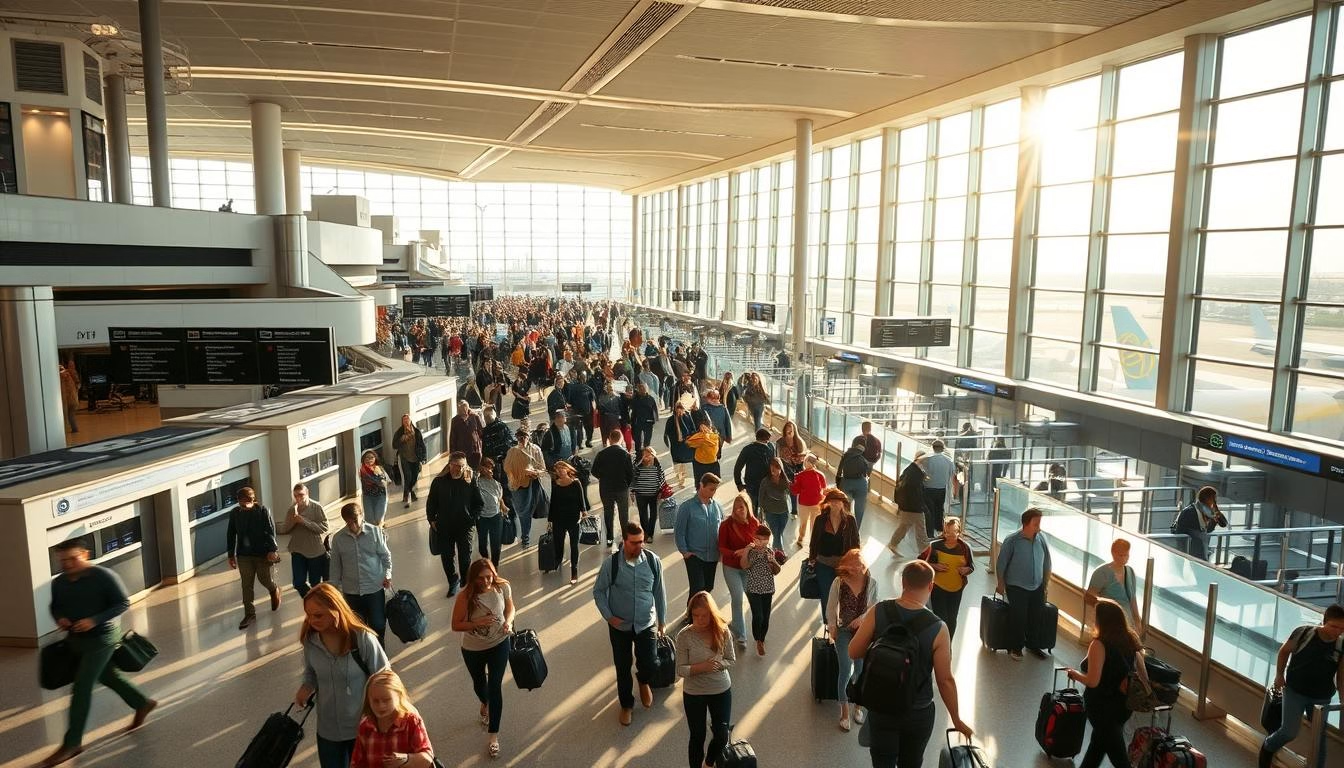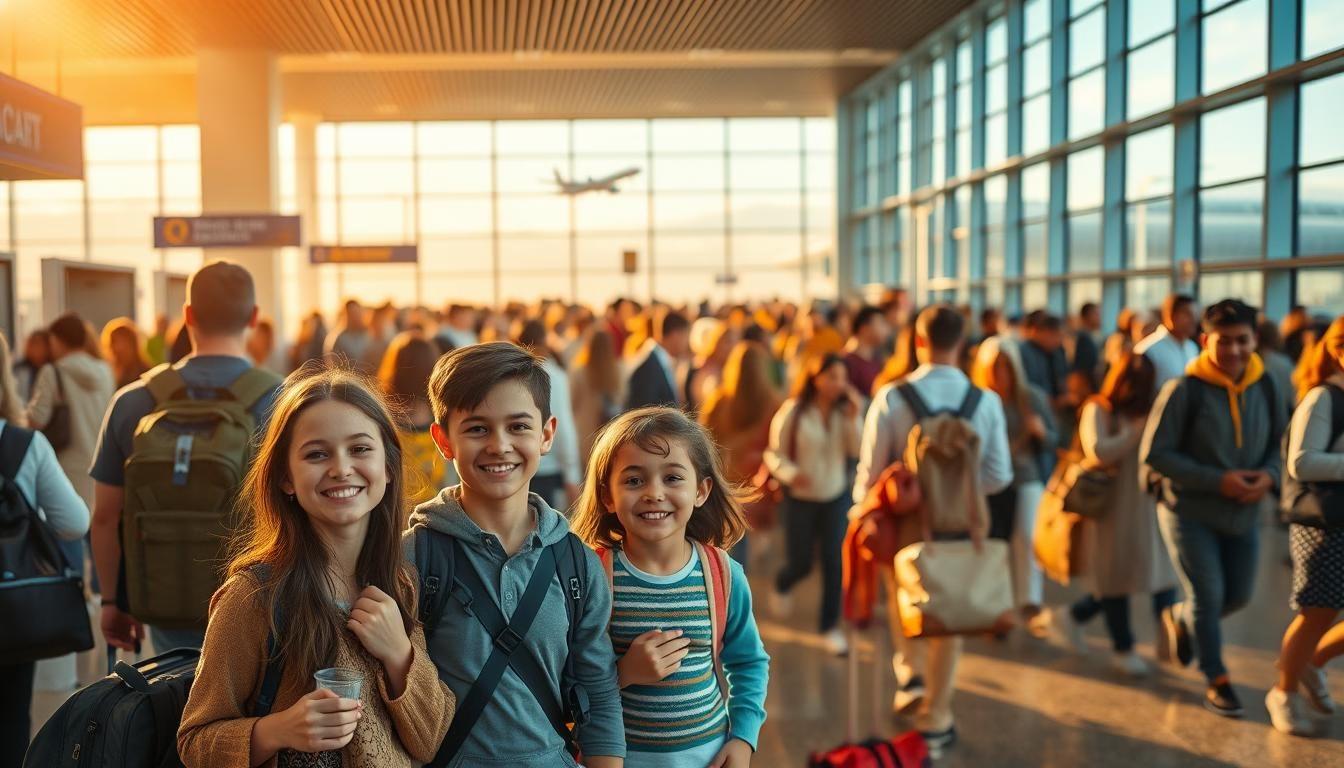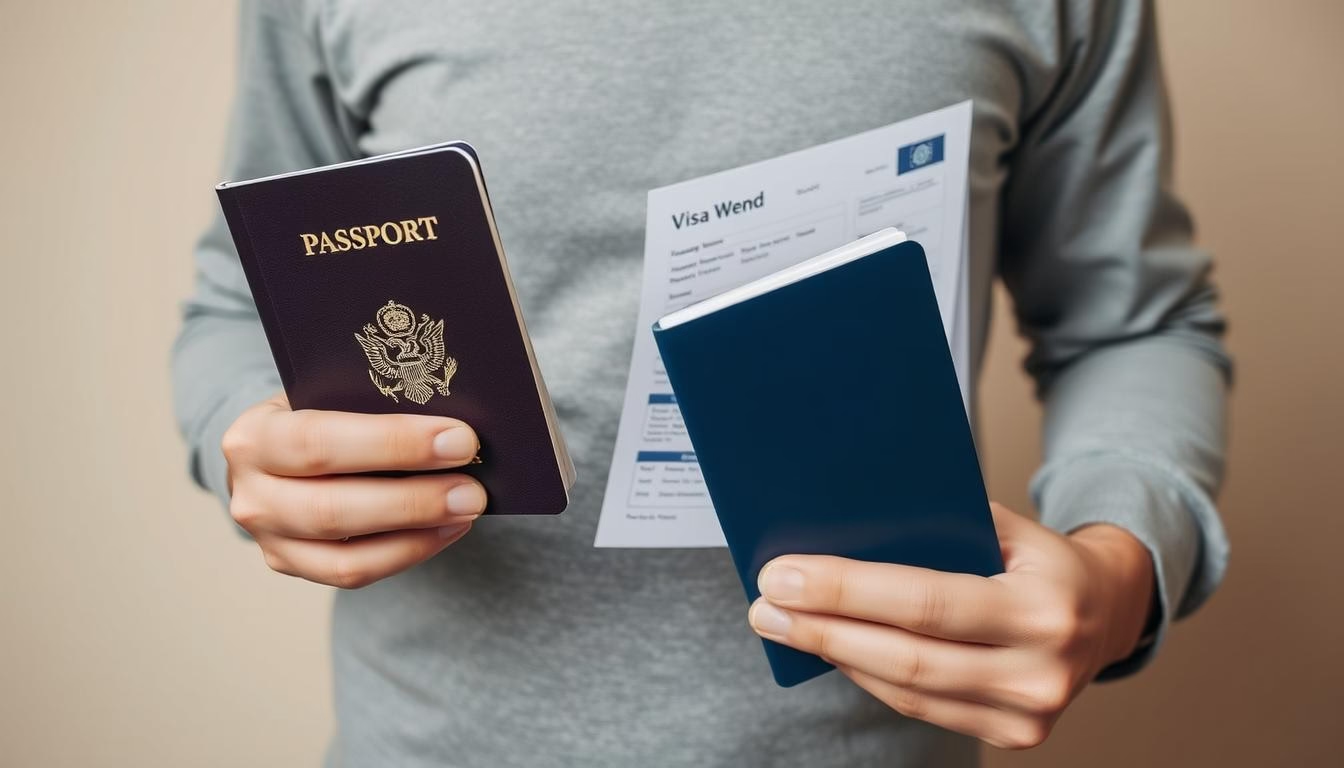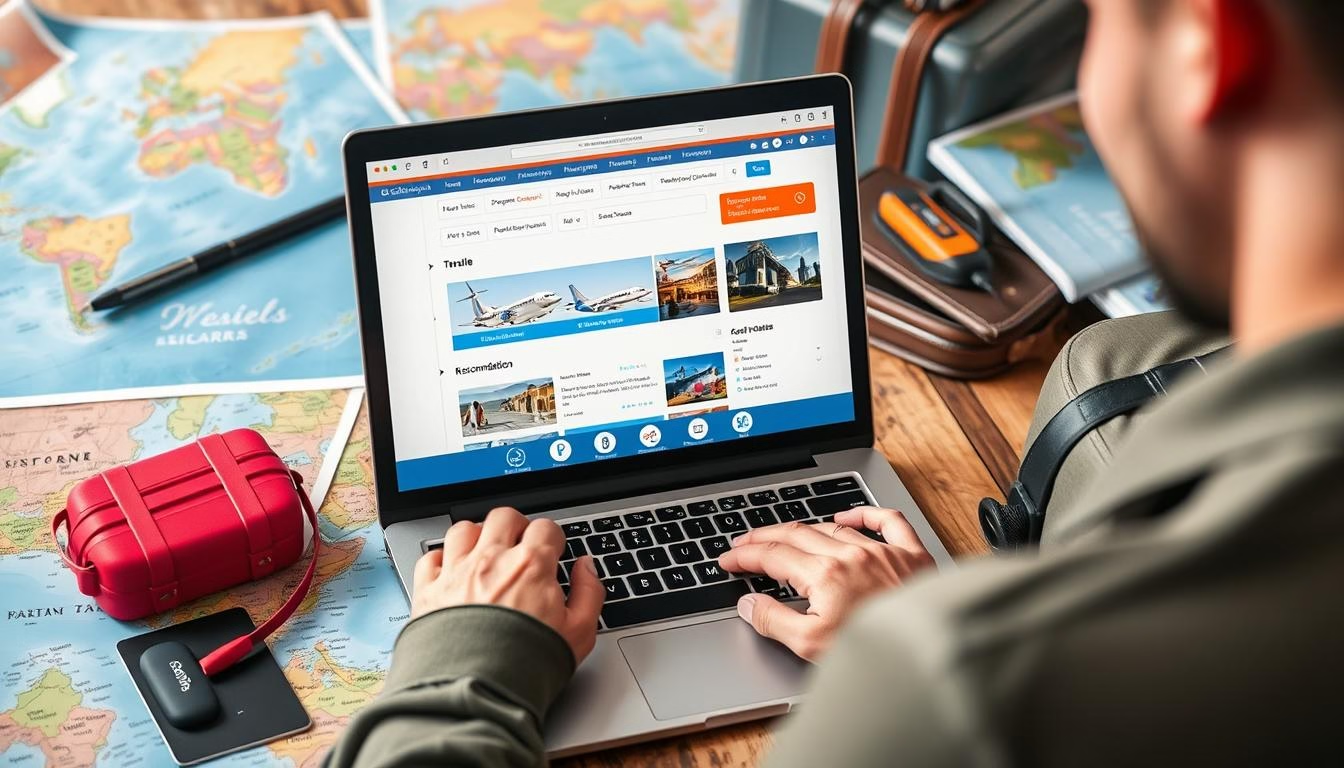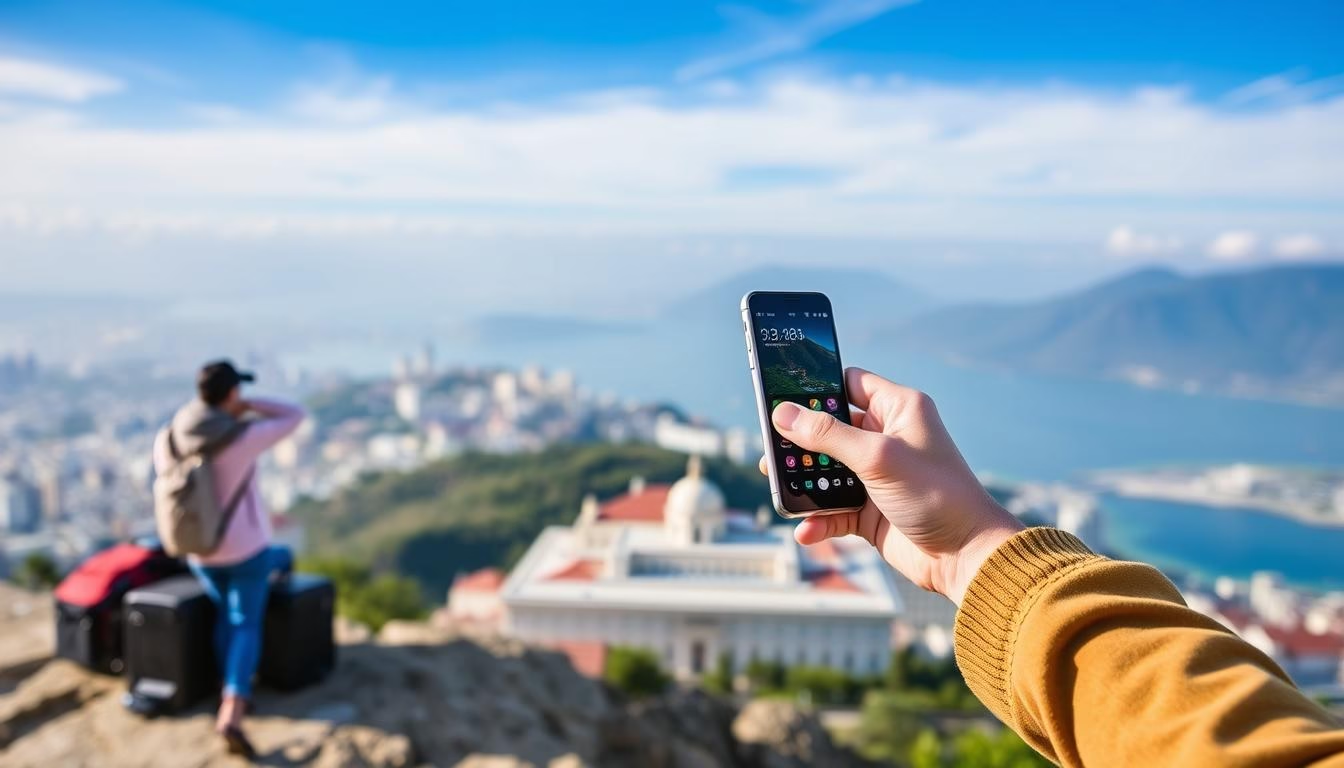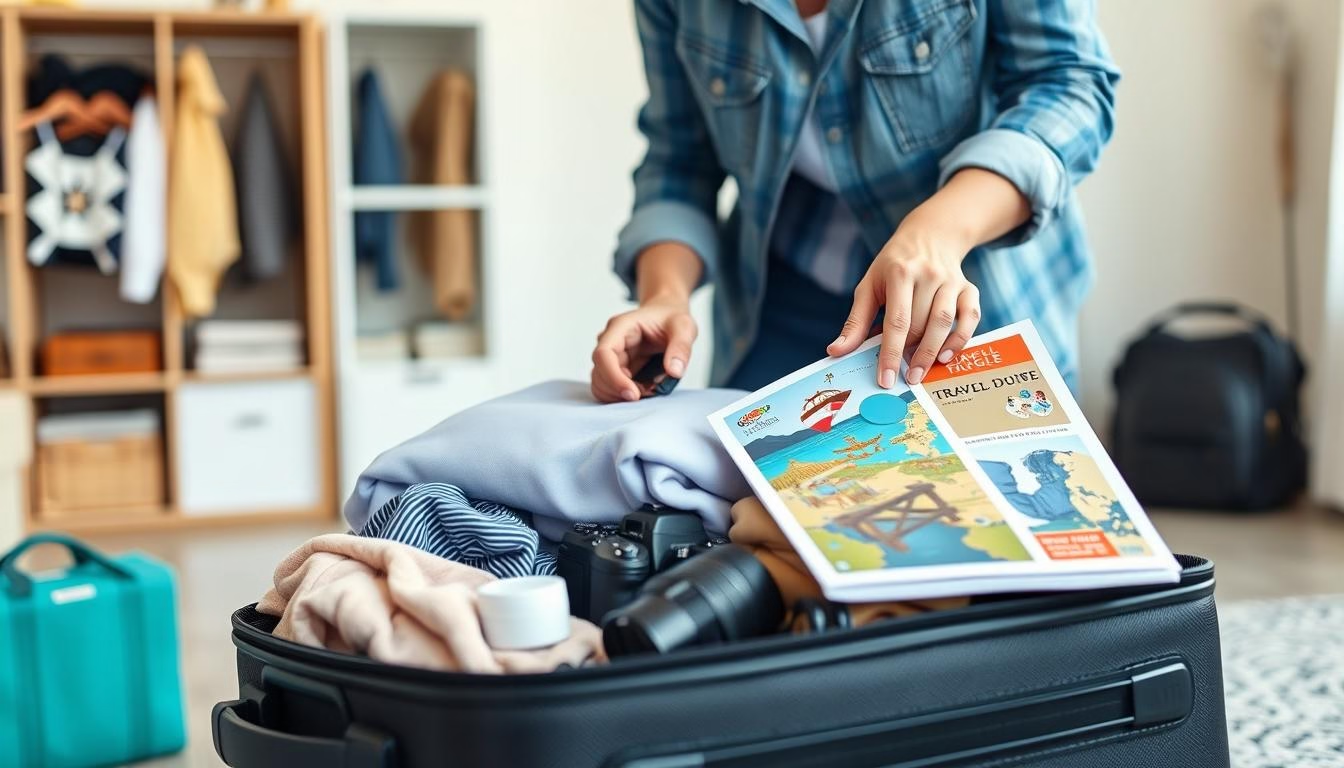Did you know that over 1.4 billion people traveled abroad in 2019, with the number expected to grow in the coming years? This staggering statistic highlights the growing trend of exploring the world beyond one’s borders.
Embarking on an international trip can be a thrilling experience, but it can also be daunting for first-time travelers. Planning is crucial, as tasks like obtaining passports and visas can take significant time to process.
Understanding the basics of travel can help reduce anxiety and allow travelers to focus on enjoying their experience abroad. With the right guidance, beginners can navigate the complexities of international travel and make the most of their trip.
Why First-Time International Travel Can Be Both Exciting and Overwhelming
The prospect of traveling abroad for the first time is often filled with a mix of excitement and apprehension. International travel represents a significant step into the unknown, offering a unique blend of experiences that can be both thrilling and intimidating.
The Thrill of Exploring New Cultures and Destinations
One of the most exciting aspects of international travel is the opportunity to explore new destinations and immerse oneself in different cultures. Experiencing various cuisines, languages, and ways of life can significantly broaden one’s perspective. Travelers get to visit iconic landmarks, engage with local communities, and enjoy unique cultural events, making the experience truly enriching.
Common Concerns and Fears of First-Time International Travelers
Despite the excitement, many first-time travelers face common concerns such as navigating language barriers, understanding foreign transportation systems, and adhering to cultural norms in unfamiliar places. Worries about safety, getting lost, or making cultural faux pas are also prevalent. Understanding these challenges can help travelers prepare better for their journey.
| Concerns | Preparatory Steps |
|---|---|
| Language Barriers | Learn basic phrases, and carry a translation guide |
| Navigating Foreign Transportation | Research transportation options, download relevant apps |
| Cultural Norms and Faux Pas | Study local customs, dress appropriately |
By acknowledging and addressing these concerns, first-time international travelers can mitigate their anxiety and enhance their travel experience. It’s essential to approach international travel with a balanced mindset, embracing both the thrill of discovery and the challenges that come with it.
Essential International Travel Tips for Beginners: Documentation Preparation
The key to a stress-free international travel experience starts with proper documentation. Ensuring you have the right documents is crucial for a smooth journey.
Passport Requirements and Application Timeline
Passport preparation is the first critical step for international travel, requiring applications to be submitted well in advance as processing can take 7-10 weeks for routine service. It’s essential to check the expiration date of your passport; many countries require it to be valid for at least six months beyond your planned return date, making time a critical factor.
Understanding Visa Requirements for Different Countries
Visa requirements vary significantly between countries. Some allow visa-free travel for certain passport holders, while others require applications months in advance of your trip. Researching the specific visa requirements for your destination is crucial, and understanding the processing time is vital.
Important Documents to Copy and Store Securely
Always make physical and digital copies of important travel documents, including your passport, visa, travel insurance policy, and itinerary. Store these copies securely, using cloud storage and sharing physical copies with a trusted person at home.
Researching Your Destination Thoroughly
Delving into information about your destination country can significantly enhance your travel experience. Thorough research is essential for understanding the cultural context, local customs, and potential challenges you might face during your international trip.
Cultural Customs and Local Laws to Be Aware Of
Learning about a country’s cultural norms helps avoid unintentional offense. Research appropriate dress codes, greeting customs, tipping practices, and dining etiquette to ensure a respectful and enjoyable experience.
Understanding local laws is also crucial, as some countries have regulations that might seem unusual but carry serious penalties for violations. For instance, chewing gum is illegal in Singapore, and feeding pigeons is prohibited in Venice.
Language Considerations and Basic Phrases to Learn
Language preparation enhances the travel experience. Learn basic phrases like greetings, “thank you,” “please,” numbers, and how to ask for help or directions in the local language. This not only facilitates communication but also shows respect for the local culture.
Weather Patterns and Best Times to Visit
Researching the destination’s weather patterns and seasons is vital for packing appropriately and planning activities. Some places have extreme seasonal variations or distinct rainy/dry seasons. Identify the best times to visit your destination based on weather, crowds, and local festivals or events that might enhance or complicate your trip.
By thoroughly researching your destination, you can anticipate and prepare for the nuances of your destination country, ensuring a smoother and more enjoyable international travel experience.
Creating a Realistic Travel Budget
A well-planned budget is the backbone of a successful international travel experience. To avoid financial stress and enjoy your trip without constant money worries, it’s crucial to create a realistic travel budget.
Estimating Major Expenses
Start by estimating major expenses like international flights, accommodations, and pre-booked activities or tours, which typically account for 50-70% of total trip costs. Researching and comparing prices can help you make informed decisions and save money.
Planning for Daily Costs
Plan for daily expenses, including meals, local transportation, entrance fees to attractions, and souvenirs by researching average costs in your destination. Websites like budgetyourtrip.com can provide valuable insights into average costs based on country and travel style.
Building in a Buffer
It’s also important to build in a buffer of at least 15-20% for unexpected expenses such as emergency transportation, medical needs, or spontaneous opportunities that arise during your trip. This will help you navigate any unexpected costs without derailing your entire budget.
By following these steps and being mindful of your expenses, you can create a travel budget that works for you. Consider using travel rewards programs, booking flights during optimal pricing windows, and exploring alternative accommodation options to save money on your trip.
Smart Booking Strategies for Flights and Accommodations
To make the most of your international trip, it’s essential to adopt smart booking strategies for flights and accommodations. Strategic booking can significantly reduce travel costs and enhance your overall experience.
Finding the Best Deals on International Flights
For flights, booking 3-6 months in advance typically offers the best prices. Use flight comparison tools like Google Flights, Skyscanner, or Kayak to monitor price trends and set alerts for price drops on your desired routes.
Consider indirect flights or alternative nearby airports, which can sometimes reduce costs by 20-30% compared to direct flights to major airports.
Comparing Accommodation Options: Hotels, Hostels, and Rentals
When comparing hotels, hostels, and vacation rentals, weigh the trade-offs between convenience, amenities, affordability, and space. Location is crucial when booking hotels or accommodations – staying centrally might cost more, but can save on transportation time and expenses during your trip.
Read reviews across multiple sites when booking accommodations to get a comprehensive understanding of what to expect beyond the marketing photos.
Benefits of Booking Activities and Tours in Advance
Booking activities and tours in advance not only secures your spot for popular attractions but often comes with early booking discounts and allows you to build a more balanced travel itinerary.
Money Management While Traveling Abroad
Traveling abroad requires careful money management to minimize financial risks and maximize your travel experience. Effective financial planning is crucial to enjoying your trip without unnecessary stress.
Notifying Your Bank and Credit Card Companies
Before you set off for your destination, it’s vital to notify your bank and credit card companies of your travel plans. This simple step can prevent your bank from flagging your transactions as suspicious and potentially freezing your accounts.
Understanding Currency Exchange and Avoiding Fees
Researching the local currency and understanding exchange rates before your trip can save you money. Be aware that airport currency exchange kiosks often offer the worst rates with high fees. Consider using a travel-focused credit card that doesn’t charge foreign transaction fees.
Carrying the Right Mix of Payment Options
It’s advisable to carry a mix of payment options, including a primary credit card, a backup card stored separately, and some local currency for small purchases and places that don’t accept cards. In countries with predominantly cash economies, plan by withdrawing larger amounts less frequently to minimize transaction fees.
Some key tips for managing your money while traveling abroad include:
– Notifying your bank and credit card companies about your travel plans.
– Researching the local currency and exchange rates before your trip.
– Carrying a strategic mix of payment options.
– Avoiding airport currency exchange kiosks due to high fees and poor exchange rates.
– Considering the use of a travel-focused credit card.
– Being aware of potential ATM fees from both your bank and the local bank.
By following these guidelines, you can ensure a smoother financial experience while traveling abroad, allowing you to focus on enjoying your trip.
Health and Safety Precautions for International Travelers
As you prepare for your international journey, health and safety precautions should be at the top of your checklist. Ensuring you’re adequately prepared can make a significant difference in your travel experience.
Necessary Vaccinations and Health Preparations
Researching and obtaining the necessary vaccinations for your destination is a critical step. It’s recommended to consult a healthcare professional at least 6-8 weeks before your departure to allow time for any required vaccinations or medications.
Vaccination requirements vary by destination, so it’s essential to check the specific needs for your travel plans. Additionally, packing a basic medical kit with essentials like prescription medications, pain relievers, and first aid supplies can help you handle minor health issues during your trip.
The Importance of Travel Insurance
Travel insurance is a vital component of international travel planning. It provides coverage for unexpected medical emergencies, trip cancellations, and lost luggage, among other things. When selecting a travel insurance policy, ensure it covers your destination and any planned activities, especially if you’re engaging in adventure sports.
Comprehensive travel insurance can be a lifesaver in case of an emergency, providing financial protection and peace of mind.
Safety Tips for Different Destinations
Understanding the safety conditions at your destination is crucial. Research government travel advisories and recent traveler reviews to stay informed about potential risks and areas to avoid. Registering with your country’s embassy or consulate can also provide an additional layer of safety, as you’ll receive important safety alerts and assistance in case of an emergency.
By taking these health and safety precautions, you can significantly enhance your international travel experience, ensuring it’s both enjoyable and safe.
Packing Efficiently for International Travel
The art of packing for international travel lies in balancing preparedness with practicality. Efficient packing is not just about what you bring, but also about how you pack it.
Essential Items Every International Traveler Needs
When packing for international travel, it’s crucial to include a few essential items. These include a universal power adapter, copies of important documents, a small first aid kit, and a reusable water bottle with filtration capability. These things can significantly enhance your travel experience by providing convenience and peace of mind.
Packing by Activity Rather Than “Just in Case”
A packing strategy that works well is to pack by activity. Think about the things you’ll need for specific activities like hiking, dining out, or beach days, and pack accordingly. This way, you avoid overpacking and reduce the risk of checking in too heavy luggage.
Understanding Baggage Restrictions and Weight Limits
Before you start packing, make sure to check your airline’s baggage restrictions and weight limits for both carry-on and checked luggage. This helps you avoid surprise fees at the airport and ensures a smoother travel experience. Staying hydrated during your journey is also important; consider packing a refillable water bottle.
By adopting these strategies, you can make sure your international travel experience is more enjoyable and less stressful.
Navigating Airports and International Flights
As you prepare for your international trip, understanding the ins and outs of airport navigation and flight comforts can enhance your travel experience. Navigating international airports and flights requires preparation and patience, especially for first-time travelers facing unfamiliar procedures.
Airport Arrival Times and Security Procedures
Arriving at the airport at least 3 hours before international flights allows time for check-in, security screening, passport control, and navigating to your gate. Researching airport layouts in advance is also crucial, particularly for connecting flights where you may need to change terminals or go through additional security screenings.
Surviving Long-Haul Flights Comfortably
Comfort is essential for long-haul flights. Wear loose, layered clothing, and consider using compression socks to prevent swelling. Bring items like a neck pillow, eye mask, and earplugs to make your flight more comfortable.
Dealing with Jet Lag Upon Arrival
To combat jet lag, gradually adjust your sleep schedule a few days before departure and immediately adopt the local time upon arrival at your destination. Staying hydrated during flights by drinking plenty of water and limiting alcohol and caffeine can also help.
Following these tips can make your international travel experience smoother and more enjoyable.
Staying Connected While Abroad
International travel doesn’t have to mean losing touch with the people and world you know. With the right strategies and tools, you can stay connected with loved ones back home and navigate your destination with ease.
International Phone Plans vs. Local SIM Cards
When traveling abroad, one of the first decisions you’ll need to make is whether to use your current international phone plan or purchase a local SIM card. International plans offer convenience, but local SIM cards typically provide more data at lower costs. You’ll need an unlocked phone to use a prepaid SIM.
Using Wi-Fi Safely While Traveling
Using public Wi-Fi is a great way to save data, but it’s crucial to do so safely. Major cities have Wi-Fi available everywhere, while more remote destinations may have limited coverage. Employing a VPN (Virtual Private Network) protects your personal information when connecting to unsecured networks.
Apps That Make International Travel Easier
Downloading essential travel apps before departure can make a significant difference. Consider offline maps, translation tools, and currency converters that work without data. Apps like Google Maps, Google Translate, and XE Currency offer offline functionality, ensuring you stay connected and informed throughout your journey.
To maintain a balance between staying connected and being present in your travel experience, set specific times to check in with people at home rather than constantly being online. Researching your destination’s connectivity options and understanding the local language can also enhance your travel experience.
Conclusion: Embracing the Adventure of International Travel
Embracing the adventure of international travel requires a combination of preparation, flexibility, and an open mind. By following the travel tips outlined in this guide, beginners can navigate their first trip with confidence. Remember to take time to immerse yourself in local cultures and enjoy new experiences. While things may not always go according to plan, the best travel tips can help minimize challenges. With each trip, you’ll build experience and confidence, making future adventures easier and more enjoyable, and making the most of your time abroad.

